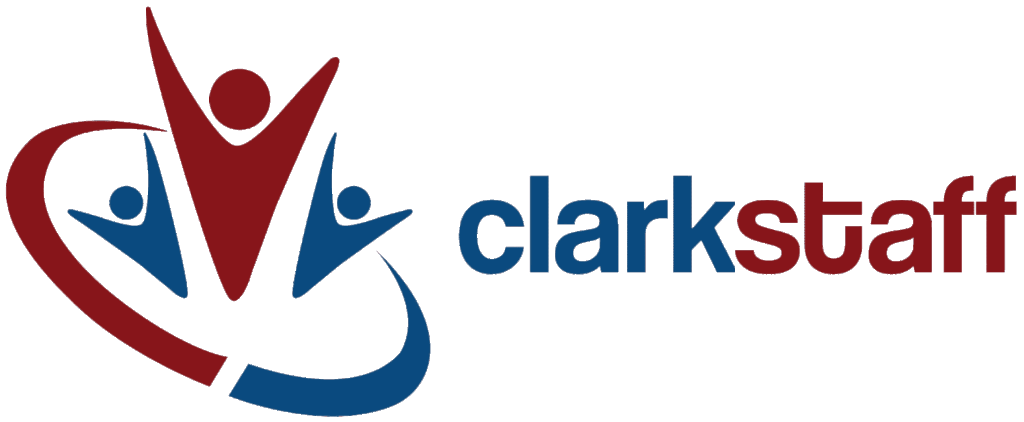Let’s face it, hiring the right talent is crucial for any organization’s success, as it can make or break it. Having the right talent means you are on the right track to success.
However, the recruitment process is no joke because it can be time-consuming, expensive, and prone to bias. This is where recruitment outsourcing can make a big difference.
Recruitment process outsourcing (RPO) is when an organization partners with a reputable BPO company to source, screen, and hire candidates on its behalf.
Having a partner in screening your company’s potential talents but with the right infrastructure and tools can help you find the best candidate to scale your business.
In a sense, RPO providers are like search engines who have filters to find what you’re looking for.
RPO provides several benefits that can greatly improve hiring quality here are some of them:
Access to Specialized Expertise
Recruiters at RPO service providers focus exclusively on talent acquisition. They have extensive expertise in sourcing techniques, screening, assessment, and recruitment best practices.
Most companies do not have dedicated in-house recruiters. Hiring managers and HR professionals take on recruitment in addition to their other responsibilities.
Outsourced recruiters are highly trained in activities like:
- Writing accurate and compelling job descriptions to attract suitable candidates.
- Promoting openings through multiple online and offline channels to increase applicant volume.
- Conducting structured interviews and assessments to thoroughly evaluate applicants.
- Selling the company culture and values to top talent.
This specialization results in higher quality hires who are a better cultural and skills fit, which, ultimately means good for your company.
Expanded Talent Reach
Internal recruiters are limited in how extensively they can source candidates. RPO providers use their industry connections and recruitment technology to significantly expand talent reach.
Outsourced recruiters leverage large networks on professional platforms like LinkedIn to connect with passive candidates open to new opportunities. They also advertise openings on job boards and targeted candidate databases.
Wider talent reach increases applicant volume and quality. With a larger pool to screen, there is a better chance of finding rare superstar candidates that perfectly fit the role requirements.
Here are some key recruitment technologies used in RPO services:
- Applicant Tracking Systems (ATS) – RPO providers use ATS platforms like Taleo, Jobvite, Bullhorn to manage high-volume recruiting and hiring pipelines for clients.
- Video Interviewing – RPOs leverage on-demand and live video interviewing tools like HireVue, Spark Hire to streamline screening and interviews.
- Talent CRMs – RPOs use CRMs like Avature and SmartRecruiters to maintain candidate databases and relationships across clients.
- Recruitment Marketing Tools – RPOs utilize job posting and advertising tools like Indeed, LinkedIn, and Google Ads to attract candidates on behalf of clients.
- Candidate Screening Tools – Online assessments, background checks, skills testing help RPOs screen and evaluate candidates at scale.
- Recruitment Analytics – RPOs use data and reporting tools to analyze metrics and provide insights to clients on hiring performance.
- Automation Tools – Chatbots, automated communication tools help RPOs engage and update candidates at high volumes.
- Collaboration Tools – Tools like video conferencing, instant messaging, project management systems enable collaboration between RPO and client teams.
Overcoming Unconscious Bias
All people have some unconscious biases that can negatively impact hiring decisions. However, outsourced recruiters have more awareness and training to overcome biases.
In-house recruiters work closely with hiring managers who may influence them to filter out candidates that simply just don’t “fit in”. Outsourced recruiters are detached enough to objectively evaluate all applicants.
Studies show external recruitment agencies tend to put forward more diverse candidates. They help expand and diversify hiring pipelines beyond the usual talent pools companies target.
Data-Driven Hiring
RPO providers use applicant tracking systems (ATS) to collect and analyze hiring data. This gives valuable insights into metrics like:
- Source of hire – where top candidates are coming from
- Time to fill roles
- Candidate quality by source
- Offer acceptance rates
- New hire retention and performance
Data reveals what works and what doesn’t in the hiring process. Recruiters use analytics to refine strategies and improve results.
Internal recruiters often lack robust tracking and reporting capabilities to drive hiring optimization.
Cost and Time Savings
Hiring additional in-house recruiters is expensive. The average cost per hire for a corporate recruiter is $4,129, including salary and benefits.
RPO provides economies of scale and is a variable expense tied directly to hiring volume. The average cost per hire is reduced to around $1,500.
Outsourced recruiters can fill positions faster by dedicating 100% of their time to a role. Companies avoid expenses from vacant positions and lost productivity.
According to LinkedIn, it takes an average of 42 days to fill a position. Specialized agencies reduce this to 29 days or less for most roles.
Best Practices
Partnering with an RPO provider allows leveraging of industry best practices rather than reinventing the wheel internally.
Recruiters stay updated on the latest trends in recruitment technology, candidate engagement, assessment, and sourcing. They bring this expertise to improve a company’s hiring process.
Outsourcers handle everything from writing accurate job descriptions to conducting structured interviews and reference checks.
Improved Candidate Experience
Studies show candidates have better experiences with external recruiters.
In-house recruiters are often overworked handling too many open roles. This can lead to slow and minimal communication with applicants.
Outsourced recruiters are staffed adequately to provide responsive and regular interactions with candidates.
Positive candidate experiences preserve the company’s reputation. Even if unsuitable for a current role, a candidate may be a perfect fit for a future opening.
Lower Risk
RPO transfers much of the risk associated with recruitment over to the agency.
Service level agreements (SLAs) typically guarantee certain metrics like submittal to interview ratio, cost per hire, and time to fill. If an outsourcer underperforms, there are contractual protections.
With internal recruiting, the company bears all the costs of a weak hiring process with no accountability.
Access to Passive Candidates
Experienced recruiters source both active and passive candidates for their clients. While active job seekers respond to job postings, passive candidates must be identified and approached. They are not actively looking for a job but may be open to a new opportunity.
According to LinkedIn, nearly 70% of people are passive candidates even if currently employed. They are usually higher performers worth targeting.
Outsourced recruiters use advanced Boolean search techniques on platforms like LinkedIn and Github to identify relevant passive candidates. They use personalized outreach and networking to connect with promising ones open to change.
This results in hiring extremely talented people that may not be available through active channels alone.
Scalability
The scalability and flexibility of RPO is a major advantage. Outsourcing partners can quickly ramp up or down as hiring needs change. They maintain an extended team of recruiting experts familiar with the company that can step in to fill gaps.
Seasonal businesses like retail or hospitality that regularly fluctuate can benefit from easily adjustable recruiter capacity.
Reduced Workload
Recruitment requires significant time and effort even for initial phone screening, background checks, and conducting interviews. Handing this work off to an outsourcing partner frees up internal teams to focus on their core job responsibilities.
Hiring managers can concentrate on interviewing and selecting quality candidates rather than reviewing dozens of resumes. HR staff avoids getting bogged down posting openings, and answering candidate inquiries etc.
The Bottom Line
Recruitment process outsourcing has evolved from a short-term staffing fix into a strategic talent acquisition solution. The experts at outsourcing agencies deliver higher quality candidates faster to help drive business success.
RPO provides access to the latest recruitment capabilities that require significant internal investment to develop. The specialized expertise of outsourced recruiters results in a stronger, more diverse talent pipeline.
The data shows RPO reduces cost per hire while minimizing vacant position time. This directly boosts productivity and profitability.
As competition for top talent keeps increasing, outsourcing recruitment may prove a critical advantage. Partnering with an RPO provider delivers enterprise-level recruiting capabilities tailored for an organization’s specific hiring needs.






Leave a Reply